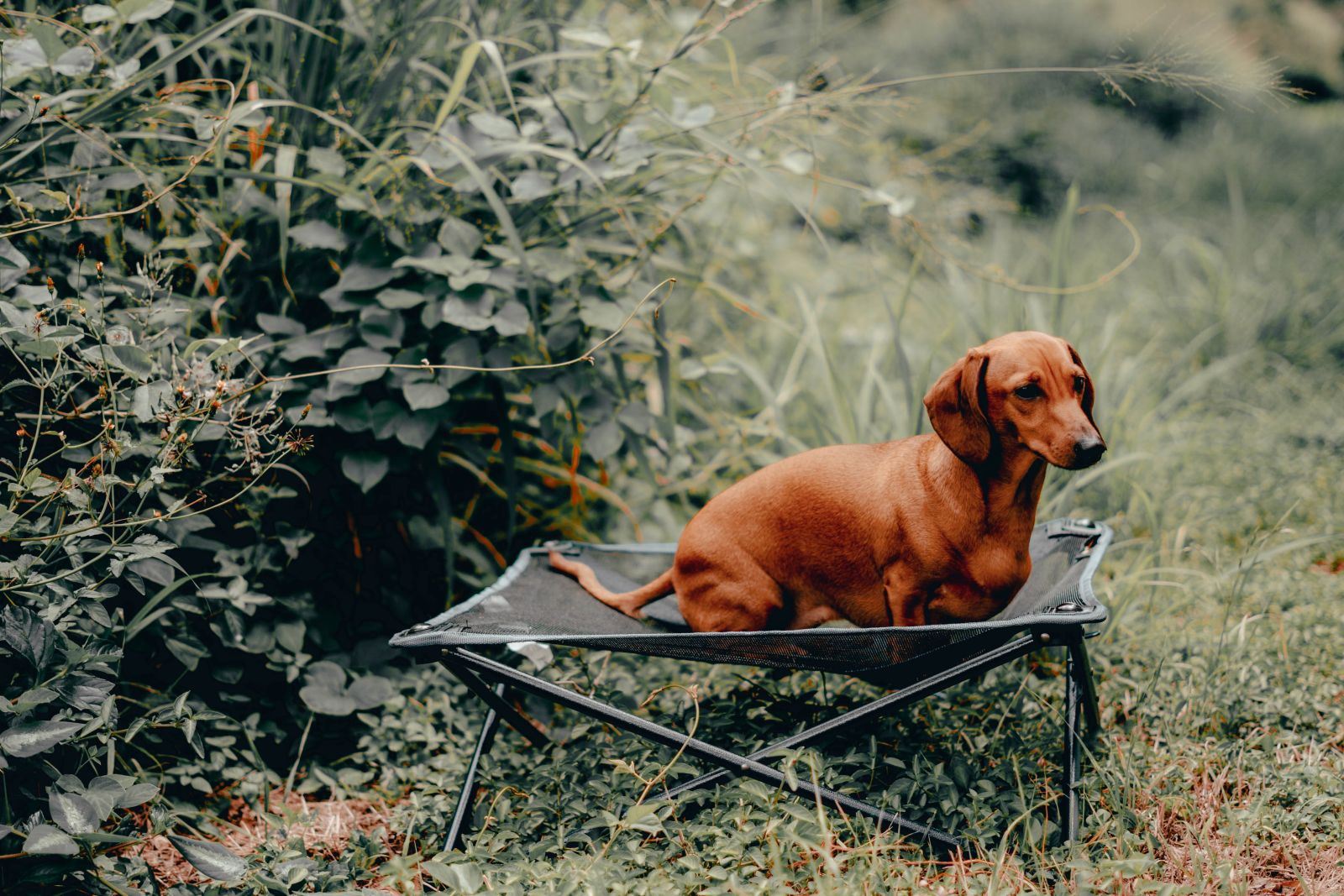
Dogs are the best. They’re man’s (and woman’s!) best friend, so why should they miss out on the fun of your next camping trip? There’s lots for them to sniff and it’s a great way to bond with your pet – but there’s a right way, and a wrong way, to approach camping with your dog. Whether you’re camping in the bush or on the beach, here’s what you need to know about dog friendly camping and how to protect your dog, yourself and the native creatures you’re likely to encounter on your trip.
What To Do Before You Go:
Before you even hit the road for your camping trip, there’s some important things you need to do to ensure that your dog will be safe when out in the wilderness.
Vet Visits And General Health:
First off, you want to be sure that they’re up to date with their vaccinations and flea, tick and worming medication. Ticks are rampant in the bush (including deadly paralysis ticks), and annual boosters are a great way of making sure your dog is safe from parvo, distemper and hepatitis viruses. Be sure to pack a first aid kit for your dog as well to cover them for grazes, cuts, splinters, bites and stings. You might want to throw in a tick remover for good measure.
Check Park Regulations:
There are lots of dog friendly camping spots out there, but not all of them have the same rules. If you’re taking your dog camping with you, check the national park or camping site’s rules and regulations to make sure you know exactly how to behave with your dog.
What To Take With You:
You’ve got your camping checklist, but now it’s time for your dog’s. It’s a pretty straightforward list, and you probably have most of the items listed already:
- Dog food
- A bowl for water
- A dog bed
- A pet life jacket if you plan on heading out in the tinny
- Your dog’s favourite treats and toys
- Any prescription medication your dog requires
- Your dog first aid kit
- A form of tethering or dog leash
- Leash/harness and ID tag
- Extra towels
- A current photo (in case of escapees)
- Dog waste bags
- If you ever want a hope of keeping the car seats clean then this seat buddy from Navigator is a life saver
There are some other things to consider depending on what you’re doing on your trip and where you’re going. You may want to bring along booties if your dog is walking on hot or cold surfaces, their bed, a doggy backpack, a brush and a coat or rain jacket. It really depends on how high maintanece your little furry friend is but usually once they are dirty theres no getting them clean until they are home.
Camping Etiquette:
When you’re going camping with your dog, it’s important to follow etiquette even when you’re staying in dog friendly camping grounds. If there are signs that say it is a dog on leash area, don't ignore them. The signs are there for a reason and it is usually to protect the native wild life in the areas.
ID And Lead:
Make sure that your dog has the correct identification tag and is microchipped in case they get loose and keep your dog on a leash – even if they have great recall, it minimises your wandering into other campsites, or them chasing after local wildlife.
Barking:
Dogs that bark are just as annoying camping as they are at home. While few people would expect a dog to be totally silent on a camping trip, continuous yapping is going to drive your fellow campers nuts and scare off wildlife. Try to keep your dog entertained so they do not become restless, tire them out as much as you can. Also think twice before bringing a very territorial dog to a place with kids and other dogs, or at least test them off leash as much as possible.
Keep Them Supervised:
Your dog should always be supervised – it’s the best thing for their safety. New surrounds, sights and smells can scare or tempt your dog to wander off, so keep them by your side and enjoy your trip safely.
Be Conscious Of Heat:
Whether you’re heading to the bush or the beach, heat stress is a major concern for your dog, particularly if they are a brachycephalic breed (e.g. pugs, bull mastiffs) that cannot regulate their body temperature well by panting. Be sure to bring plenty of water for your dog, and don’t let them over exert themselves during the hottest parts of the day.
Bush Camping With Dogs:
Bush camping with dogs presents a few other hazards and considerations.
- Keep an eye out for snakes and don’t let your dog go into thick scrub or poke their nose in fallen logs.
- Feral pigs can harm your dog if they are scared or aggressive.
- Wild dogs can potentially threaten your dog, and the bait used to control them is also poisonous to domestic dogs.
- Don’t let your dog swim in water where crocodiles may be present and if you are near water where they may be present tie your dog up so theres no chance of them wandering into creeks to cool down.
- Be aware of the native wildlife and keep your dog away – for the safety of all animals present.
Beach Camping With Dogs:
Heading off to go beach camping with dogs? You’ll want to think about a few extra things.
- Don’t let your dog swim in dangerous surf conditions including rips and rough waves.
- Provide your dog with plenty of shade and water.
- Pop some sunscreen on your dog’s nose, especially if they have a pink nose, to prevent sunburn.
- Try to bathe them during the trip, since sand can easily irritate their skin.
We hope this list helps you out for your next dog friendly camping trip. Having your best mate by your side is guaranteed to make the journey even more memorable!


.png)
Leave a comment